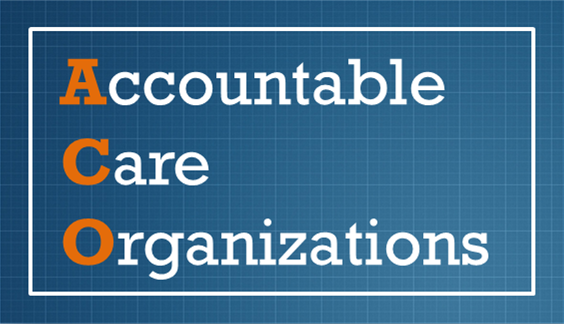MACRA’s Merit-Based Incentive Payment System Removes SGR Flaws
In order to truly solve the problems with the SGR formula, MACRA was passed and the Sustainable Growth Rate formula was repealed.

- Did you know that healthcare payment legislation passed earlier this year allows providers to take part in the Merit-Based Incentive Payment System (MIPS), a quality program from the Centers for Medicare & Medicaid Services?

This past April, the federal government passed the Medicare Access and CHIP Reauthorization Act of 2015 (MACRA) into law, which repealed the formerly held Medicare Sustainable Growth Rate (SGR) formula. CMS reports that MACRA allows providers to participate in either Alternative Payment Models or the Merit-Based Incentive Payment System.
The reason that repealing the Medicare SGR formula was a necessity is due to its impact on payment cuts among physicians based on flawed calculations, according to the American Academy of Family Physicians.
Health Affairs went into more detail about the weaknesses of the SGR formula, which consisted of some significant cuts for Medicare providers and ongoing “doc fixes” that lasted for years and led to Congress spending more funds than it could afford.
“The SGR was designed to counter the tendency toward spending growth driven by the fee-for-service model that rewards volume and intensity. It automatically reduced Medicare physician fees if physician spending exceeded a target based on overall economic growth. But the SGR is a seriously flawed formula that has been an ongoing impediment to real payment reform,” the Commonwealth Fund stated.
“The current legislation replaces the SGR with an approach focused on rewarding high-performing providers while supporting alternative payment models such as accountable care organizations and patient-centered medical homes.”
In order to truly solve the problems with the SGR formula, MACRA was passed and the Sustainable Growth Rate formula was repealed. Doctor payments under Medicare have been set to increase slowly over the next several years while the providers themselves are required to abide by more quality performance and merit-based metrics in order to receive favorable reimbursement.
This type of system once again moves the healthcare industry away from fee-for-service payment methods to a more pay-for-performance or value-based care model of reimbursement. CMS is also planning to set aside more funding to develop quality performance measures further.
The timeline for implementing some vital aspects of the MACRA legislation includes a 0.5 percent increase for Medicare physician reimbursement from July to December 2015. Starting in 2016 and lasting until 2019, Medicare reimbursement will rise by 0.5 percent annually.
Starting in January 2019, physicians will need to choose to either take part in the Merit-Based Incentive Payment System or the Alternative Payment Models. From 2020 to 2025, the MACRA legislation requires Medicare fee-for-service rates to remain at the same levels as in 2019 without any changes.
MIPS is an innovative model that consists of a number of different parts such as the Physician Quality Reporting System (PQRS), the Value-based Payment Modifier, and the Medicare EHR Incentive Program. This means that providers who take part in MIPS will need to meet the meaningful use requirements of implementing certified EHR technology and meet mandates on quality, clinical practice enhancement, and resource use.
Starting in 2019, providers participating in the Merit-Based Incentive Payment System will be able to receive negative or positive Medicare payment rates starting at 4 percent and rising to 9 percent by 2022. To receive a positive payment adjustment, physicians will need to score above the average of a composite performance score.
Alternative Payment Models bring new ways to reimburse healthcare providers for the services offered to Medicare beneficiaries. This may include offering a lump sum payment in the form of the bundled payment system.
 Additionally, the development of Accountable Care Organizations and patient-centered medical homes are part of Alternative Payment Models. These models will also offer more transparency when reimbursing physicians as well as offering providers higher annual payments beginning in 2026.
Additionally, the development of Accountable Care Organizations and patient-centered medical homes are part of Alternative Payment Models. These models will also offer more transparency when reimbursing physicians as well as offering providers higher annual payments beginning in 2026.
The reformation of Medicare physician payments is a major advantage for healthcare providers exhausted from the obstacles the SGR formula posed. One interesting aspect of the MACRA legislation is that it had bipartisan support from both sides of the political spectrum, according to the American Academy of Family Physicians.
President Barack Obama held a gathering for physicians and lawmakers at the White House at the end of April to celebrate the passage of this historical legislation, which took more than 10 years to develop and implement.
.jpg) “It shows the significance of the legislation by holding the event in the Rose Garden,” AAFP President Robert Wergin, M.D., of Milford, Nebraska, said in a public statement. “This was very big. All physician leaders who contributed to the solution of SGR repeal were there.”
“It shows the significance of the legislation by holding the event in the Rose Garden,” AAFP President Robert Wergin, M.D., of Milford, Nebraska, said in a public statement. “This was very big. All physician leaders who contributed to the solution of SGR repeal were there.”
“This is probably the first major health care bill to pass since the ACA (Patient Protection and Affordable Care Act), and it was bipartisan,” he continued. “The SGR is laid to rest. Now we have a predictable payment schedule for Medicare and we move to a new model of value-based payments.”
The bipartisan support truly shows that the MACRA legislation seems to offer benefits to the whole medical community from patients, payers, clinics, hospitals, and other providers.
“This bill had enough in it for everybody – physicians, Democrats, Republicans, community health clinics, teaching health centers,” Wergin explained. “They all had something to gain in this. That is what made it acceptable.”
Healthcare providers and payers looking to better understand MACRA legislation and prepare for its implementation should look toward participating in PQRS reporting as well as the meaningful use program. Additionally, providing chronic care management services could ensure a higher reimbursement among a physician practice due to Medicare’s latest provisions.
